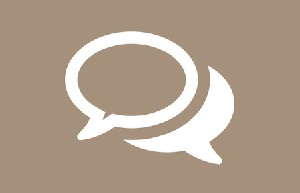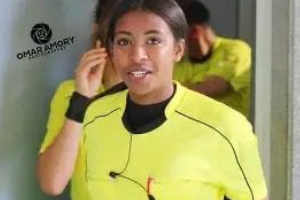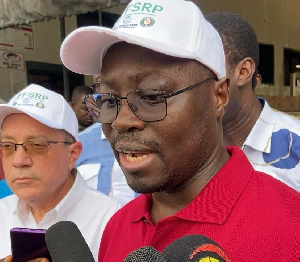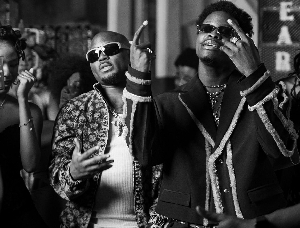The Ghana Broadcasting Corporation (GBC) programme “Talking Point” was interrupted last Sunday, September 27 to enable viewers watch and listen to President Mahama at the UN General Assembly.
GBC’s communication with New York was poor and for ages I was compelled to listen to the boring speech of one of the Presidents. I was going to turn off the TV when President Mahama appeared. I was glad I did not. The President’s speech in content and delivery was excellent. It was of the sort which made me proud as a Ghanaian when I attended the UN General Assembly.
I was however not equally pleased when in his annual address to the General Assembly he raised the matter of efforts in Ghana to balance law and order with human rights. The information given was correct but the practice of democracy is not normally for discussion at the UN. We should not inadvertently invite the major powers to meddle in our internal affairs. Such interference is contrary to the UN Charter.
But some powerful countries arrogate to themselves the right to decide who should be President of a foreign sovereign state. Meanwhile they are very friendly and support regimes whose laws allow the guilty to be beheaded and hanged!! Arrogance and narrow pursuit of national interests have led to tragedies unfolding before us.
Ghana’s problems can only be resolved in Ghana and I look forward to seeing President Mahama back home determined to end the unnecessary and disgraceful hunger in Ghana through sustained and sustainable development policies which promote agricultural and industrial production to support meaningful education and essential health facilities, while providing employment for the young and able.
The UN and the international community can only assist us to do this. More importantly, they can help by not inadvertently or intentionally putting obstacles in our way in the pursuit of national interests. We should put UN and other millennial goals in their proper perspective.
Our priorities should take precedence over millennium demands.
President Mahama has a most difficult task. But he has the nation behind him if he resolutely leads the way. A major difficulty will be distraction. Ghanaians like ceremonies but he should firmly desist from being a ceremonial President. His task requires literally 24 hours of work a day.
I hope that when President Mahama returns to Ghana he will not travel outside Ghana again until next year; and even after that only leave to fulfill engagements which clearly promote the real interests of Ghana. Ambassadors and the like are there to explain policies to outsiders.
The President should be here to cajole us to pay more for electricity if that is necessary.
The Constitution rightly vests the executive authority of Ghana in the President. All executive acts of Government are taken in the name of the President who determines the general policy of government. Even Cabinet does not determine policy.
The Constitution requires Cabinet to ASSIST the President in the determination of general policy of the Government. Of course in practice the President overrules the views of Cabinet at great risk, especially when it consists of many powerful party members. But it is the President alone who has been elected by the people and he or she has the ultimate responsibility for our general well-being and woes.
The President in a “developing” country like Ghana has a most difficult task. He cannot do his work part-time. He has to be in his office some six hours a day studying and analysing events and taking decisions. His Principal Officers should have the first call on his time. Inferiority complex should not make foreigners more accessible. Ignorance and expectation of grants should not influence major policies and decisions.
And why should the President need some six hours in the office? He needs to discuss and firm up his ideas and he must be conversant with events. He should for example be conversant with and try to contain problems before they pollute the body-politic.
By this time he should have discussed the demand for opening the voters register with both sides. He should know what the problem exactly is and find out whether the issues can be resolved without new registration. He should bring the costs involved to all concerned and if the budget cannot stand the expenditure he should suggest additional taxation.
The important thing is not to allow the public atmosphere to be polluted by pointless discussion.
Other contentious issues like school leavers and graduates not being equipped for non-available jobs can be similarly approached, as can unrest in parts of the North so that appropriate action is taken. Apart from the urgent matters the President has to deal with routine issues like meetings with key ministers on the economy and calls on him by foreigners.
The six hours a day in the office may be found insufficient but planning and discipline should enable essential work to be done.
Presidents may differ in their mode of work but availability for necessary consultations and inaccessibility for stray visitors should be the norm.
Ministers, institutional heads and officials will try to get conversant with events in their areas of responsibility knowing that the President will get himself informed early and they may be summoned for discussion. A hard-working, disciplined President induces ministers to be in their office during working hours unless they have duties outside. Also, they have to be conversant with and on top of events affecting their office or portfolio.
I am often amused when a minister states that a memorandum has been submitted to Cabinet for a decision. The way we run meetings and our character do not make many Cabinet decisions profound. For example, a memorandum on State Insurance may not concentrate on the policies advocated but who should be head of the State Insurance Corporation!
No matter what work programme the President adopts he should be available in his office or in Ghana most of the time. Much is in confusion today and we need a President who knows the facts and acts firmly. He may be accused of being dictatorial but we need to know why buildings collapse and why Judges take bribes.
And even if we do not know we are assured that all is going well if action is taken early on such matters. Talk and discussion without purpose followed by inaction are destroying the social and economic structure of the country.
Our Presidents generally represent us well. But in our present sorry state of development, we need a President who thoroughly knows what is happening and acts as the executive authority in Ghana. His place is in Ghana.
Opinions of Tuesday, 6 October 2015
Columnist: K. B. Asante















